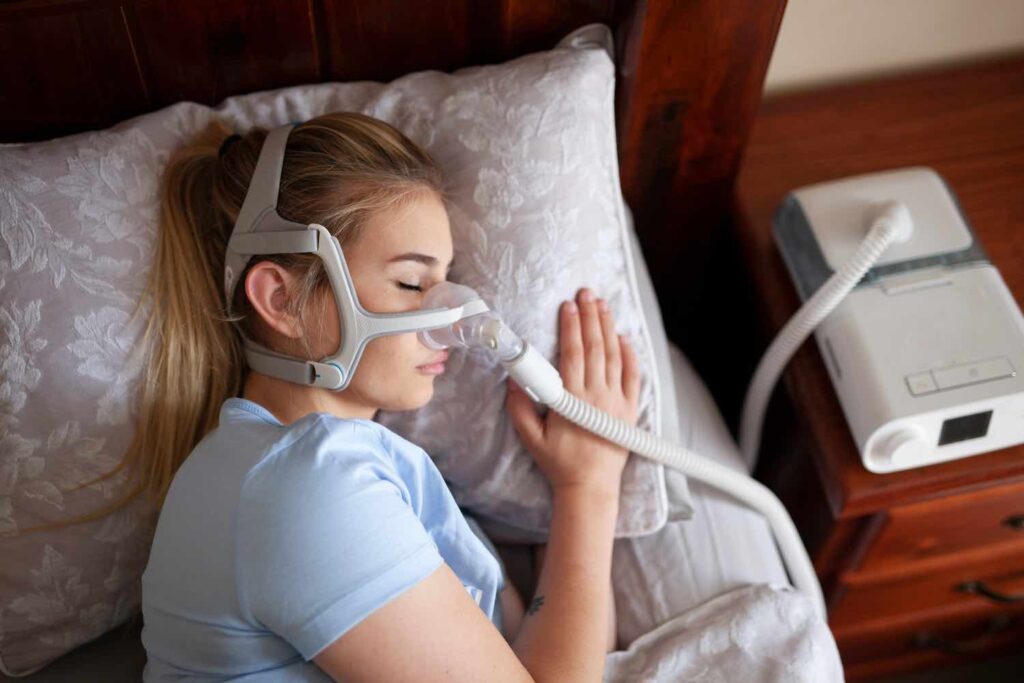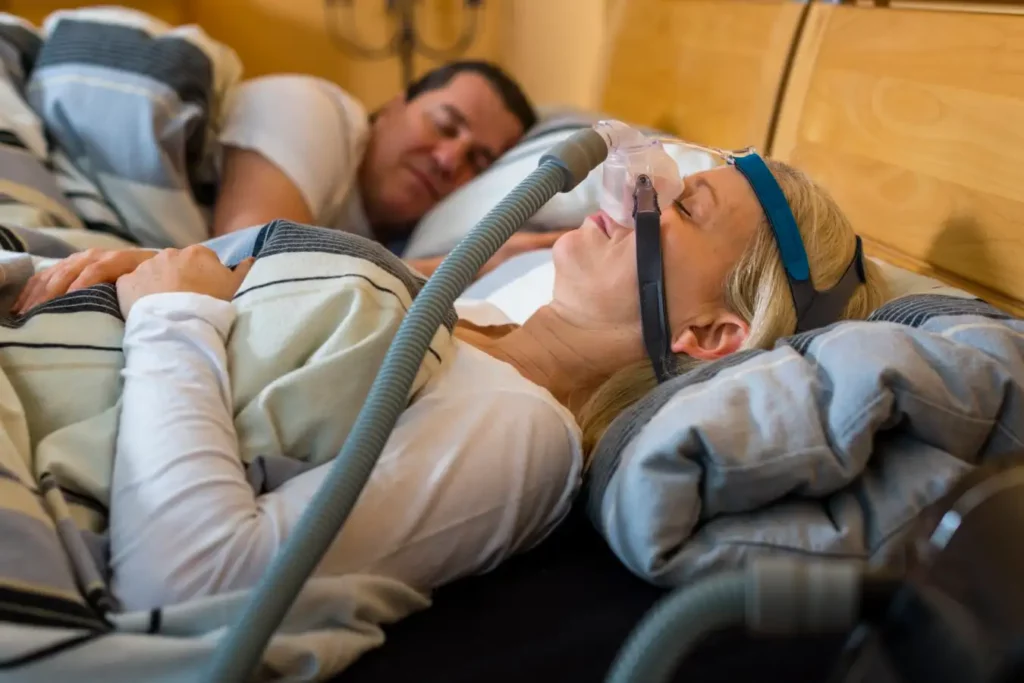Why Choose a Sleep Apnea Test in Adelaide? Key Benefits for Sleep Health
Sleep apnea is a common yet often misunderstood condition that can significantly impact an individual's overall health and quality of life. In Adelaide, sleep apnea testing has become increasingly essential for diagnosing and managing this disorder effectively. This article explores the benefits of undergoing a sleep apnea test, shedding light on the importance of sleep health and the expertise available in the region.
Understanding Sleep Apnea
Sleep apnea is a serious sleep disorder characterized by repeated interruptions in breathing during sleep. These interruptions can last from a few seconds to minutes and may occur hundreds of times a night, leading to poor sleep quality and various health complications.
Adelaide is home to several specialized clinics and facilities equipped to provide comprehensive sleep apnea test Adeliade. These centers are staffed with trained professionals who understand the nuances of sleep disorders. The city’s commitment to sleep health is reflected in the increasing number of facilities that focus exclusively on diagnosing and treating sleep-related issues, making it a hub for those seeking relief from conditions like sleep apnea.
The Science Behind Sleep Apnea
At its core, sleep apnea is primarily caused by the relaxation of throat muscles, which leads to obstructions in the airway. There are different types of sleep apnea, including obstructive sleep apnea (OSA), central sleep apnea, and complex sleep apnea syndrome. Studies suggest that factors such as obesity, age, and anatomical features can contribute to the severity of the condition.
During sleep, the brain signals the muscles that control breathing. However, with sleep apnea, this process is disrupted, causing a significant drop in oxygen levels in the blood. This oxygen deprivation is what presents the many health risks associated with the disorder. Additionally, the body often responds to these drops in oxygen by briefly waking up to resume normal breathing, which can fragment sleep and prevent the individual from reaching the deeper, restorative stages of sleep necessary for overall health.

Symptoms and Risks of Sleep Apnea
Common symptoms of sleep apnea include loud snoring, episodes of gasping or choking during sleep, excessive daytime sleepiness, and difficulty concentrating. Many individuals may not realize they have sleep apnea until someone else observes these symptoms. In fact, partners or family members often play a crucial role in identifying the disorder, as they may witness the breathing irregularities that the individual is unaware of while asleep.
If left untreated, sleep apnea can lead to serious health complications, including cardiovascular issues, diabetes, and even stroke. The repeated interruptions in breathing can cause stress on the heart, leading to high blood pressure and an increased risk of heart disease. Furthermore, the chronic fatigue associated with sleep apnea can impair cognitive function and mood, contributing to anxiety and depression. Understanding these risks emphasizes the need for timely diagnosis and intervention, making sleep apnea testing vital for anyone exhibiting symptoms. Early detection can lead to effective treatment options, such as lifestyle changes, the use of CPAP machines, or even surgical interventions, which can significantly improve quality of life and reduce health risks associated with this disorder.
The Importance of Sleep Health
Quality sleep is essential for maintaining physical, mental, and emotional well-being. Sleep health plays a critical role in various bodily functions, including immune response, hormone regulation, and cognitive performance.
The Role of Sleep in Overall Health
Adequate sleep contributes to enhanced mood, improved memory, and better decision-making abilities. Research demonstrates that individuals who suffer from poor sleep quality are at greater risk for chronic health conditions, which emphasizes why managing sleep health is essential.
Furthermore, sleep is a crucial time for the body to repair and rejuvenate itself. During deep sleep, the brain processes information from the day and supports neural connections necessary for learning and memory retention. This restorative phase is also when the body releases growth hormones, which are vital for muscle repair and overall physical health. The interplay between sleep and physical activity is particularly noteworthy; individuals who prioritize sleep often find themselves more energized and motivated to engage in exercise, creating a positive feedback loop that enhances both physical and mental health. Read more about hormones at https://www.ncbi.nlm.nih.gov/books/NBK538498/
Consequences of Poor Sleep Health
Chronic sleep deprivation can lead to a range of negative outcomes, including irritability, diminished productivity, and an increased likelihood of accidents. In the long term, persistent sleep issues like sleep apnea can escalate these problems and lead to more severe health outcomes. Studies have linked poor sleep to increased risks of cardiovascular diseases, obesity, and diabetes, highlighting the far-reaching implications of neglecting sleep health.
Ultimately, individuals who struggle with sleep are likely to experience a decline in their overall quality of life. Recognizing the importance of sleep health underlines the value of a thorough sleep assessment, especially in the context of sleep apnea. Additionally, lifestyle factors such as diet, stress management, and screen time before bed can significantly influence sleep quality. By adopting healthy sleep practices, such as establishing a consistent sleep schedule, creating a restful environment, and limiting caffeine intake, individuals can take proactive steps to enhance their sleep health and, by extension, their overall well-being.
Sleep Apnea Testing in Adelaide
What Does a Sleep Apnea Test Involve?
A sleep apnea test typically involves an overnight study, often referred to as a polysomnogram. During this test, various physiological parameters are monitored, including brain waves, oxygen levels, heart rate, and respiratory patterns. This comprehensive data helps diagnose the presence and severity of sleep apnea. The process is designed to be as comfortable as possible, with patients often able to sleep in a private room equipped with advanced monitoring devices that do not interfere with their rest.
In some cases, a home sleep apnea test may also be conducted, which uses simplified equipment to monitor your breathing patterns during sleep in your own environment. This option is particularly appealing for those who may feel anxious about sleeping in a clinical setting. Both methods are valuable tools in understanding the patient's condition and planning effective treatment strategies. Additionally, the data collected can help identify other potential sleep disorders, such as restless leg syndrome or insomnia, providing a more holistic view of the patient's sleep health.
The Expertise of Adelaide Sleep Clinics
Adelaide boasts several sleep clinics renowned for their expertise in diagnosing and treating sleep disorders. These clinics utilize state-of-the-art technology and a patient-centered approach to ensure accurate assessments. Many of these facilities are also involved in ongoing research and clinical trials, contributing to the advancement of sleep medicine and offering patients access to cutting-edge treatments that may not be widely available elsewhere.
Healthcare professionals at these clinics, including sleep specialists, pulmonologists, and respiratory therapists, work collaboratively to provide a comprehensive treatment plan tailored to each patient's needs. Their commitment to staying updated with the latest research ensures that patients receive the best possible care. Moreover, many clinics offer educational resources and support groups, helping patients and their families understand the implications of sleep apnea and the importance of adherence to treatment plans. This holistic approach not only addresses the medical aspects of sleep apnea but also fosters a supportive community for those affected by this condition. Click here to find more about pulmonologists.
Key Benefits of Undergoing a Sleep Apnea Test
Choosing to undergo a sleep apnea test in Adelaide can yield multiple benefits, influencing not only sleep quality but overall health and well-being.
Early Detection and Treatment
One of the most significant advantages of a sleep apnea test is the opportunity for early detection. Identifying sleep apnea early can lead to more effective treatment, potentially preventing severe complications associated with the disorder.
With proper diagnosis, individuals can explore various management options, including lifestyle changes, continuous positive airway pressure (CPAP) therapy, and potentially surgical interventions. Each of these options, when initiated promptly, can drastically improve overall health outcomes.
Moreover, early detection can also help in mitigating the risk of developing comorbid conditions such as hypertension, diabetes, and cardiovascular diseases. Studies have shown that untreated sleep apnea can exacerbate these conditions, leading to a vicious cycle of health deterioration. By addressing sleep apnea promptly, patients can not only enhance their sleep quality but also significantly lower their risk of these serious health issues, paving the way for a healthier future.
Improving Quality of Life
Many patients report remarkable improvements in their quality of life following diagnosis and treatment for sleep apnea. Better sleep leads to increased energy levels, heightened focus, and reduced daytime sleepiness, allowing individuals to feel more engaged and productive in their daily activities.
Furthermore, effective management of sleep apnea can drastically reduce the risks of associated health problems. Patients often experience better mood regulation, reduced anxiety, and improved overall health, all contributing to a more fulfilling life.
In addition to these psychological benefits, improved sleep can enhance social interactions and relationships. Individuals who are well-rested are more likely to participate in social activities, maintain friendships, and engage in family life, fostering deeper connections with loved ones. This social engagement can create a positive feedback loop, wherein improved relationships further enhance emotional well-being, making the journey of managing sleep apnea not only a medical necessity but a pathway to a richer, more connected life.

Frequently Asked Questions about Sleep Apnea Testing
Individuals considering a sleep apnea test often have numerous questions regarding the procedure and what to expect. Here are some of the most common inquiries.
Preparing for a Sleep Apnea Test
Preparation for a sleep apnea test may involve several steps. Your healthcare provider may recommend avoiding alcohol and certain medications that could interfere with the results. It's also advisable to stick to your regular nighttime routine to ensure accurate monitoring during the test.
Patients should feel comfortable with the testing environment, and staff members are generally available to answer any questions before the procedure begins. Feeling at ease can help reduce any anxieties associated with the test. Additionally, it can be beneficial to discuss any concerns or previous experiences with sleep issues during the pre-test consultation, as this can help tailor the testing process to better suit individual needs.
What to Expect After the Test
After the sleep apnea test, healthcare providers will analyze the collected data, and a follow-up appointment will typically be scheduled to discuss the results. This follow-up is crucial for developing an effective management plan based on the findings.
Patients may also receive recommendations for lifestyle changes, therapy options, or referrals to specialists based on their specific condition. Understanding the outcomes of the test is instrumental in guiding individuals towards improved sleep health and overall well-being. Moreover, many patients find it helpful to keep a sleep diary leading up to their follow-up appointment, noting any changes in their sleep patterns or daytime alertness, which can provide valuable context for the healthcare provider when interpreting the test results.
Furthermore, it’s important to recognize that the journey doesn’t end with the test results. Many individuals benefit from ongoing support groups or educational resources that address sleep apnea management. Engaging with others who share similar experiences can provide encouragement and practical tips for coping with the condition, making the path to better sleep more manageable and less isolating.
Other resources: Sleep Apnea Test Australia

